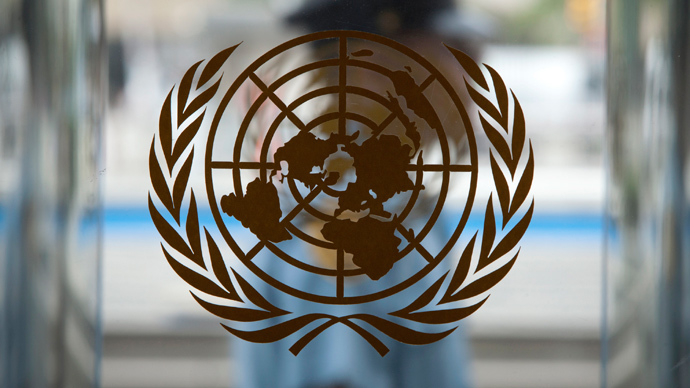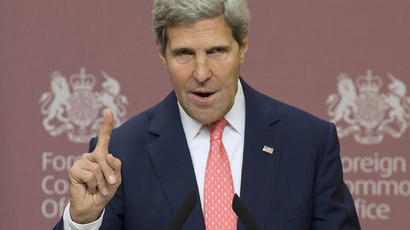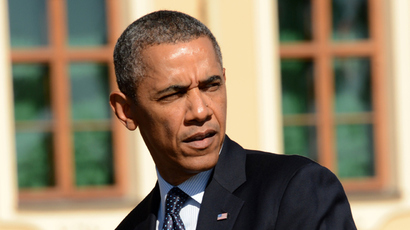Russian plan to take control of Syrian chemical weapons discussed at UNSC

Russia has handed over its plan for putting Syria's chemical weapons under international control to the US. Meanwhile the UN Security Council’s five permanent members have held a closed-door session to discuss an effective way out of the crisis.
“We have handed over to the Americans our plan for
establishing international control over Syria’s chemical weapons
and we hope to discuss it in Geneva,” said a source in the
Russian delegation that will accompany Foreign minister Sergey
Lavrov during his consultations with US Secretary of State John
Kerry.
At the same time Russia has reportedly passed to the UN Security Council evidence of Syrian rebels being behind the use of chemical weapons in the country.
“We submitted to the UN SC documents that prove that the chemical weapons were used by opposition forces,” Russian Ambassador to Lebanon Aleksandr Zasypkin told Al Mayadeen channel, reports RIA Novosti.
Meanwhile on Wednesday in New York, envoys from the five permanent UN Security Council member states – the United States, Britain, China, France and Russia – met to discuss the Russia proposed plan as well as try to come up with common language for a UN resolution to support it.
"Today's discussion helped to pave the way for tomorrow's meeting [in Geneva]," one council diplomat told Reuters on condition of anonymity, while the ambassadors declined to comment as they left.
Shortly before the talks, US, French and British diplomats reportedly met to find common ground on a draft that would comply with Russia’s position but suggest an ultimatum and punitive measures for the Syrian government.
This comes on the eve of the meeting between Russian Foreign Minister Sergey Lavrov and US Secretary of State John Kerry in Geneva to discuss the Syrian chemical weapons issue. The talks are expected to last for at least two days, possibly more, State Department spokeswoman Jen Psaki told a media briefing.
The top diplomats will be accompanied by Russian and American experts for a thorough discussion of Moscow’s proposal for Damascus to put its chemical arms arsenal under international control.
UN Secretary-General Ban Ki-moon expressed hope that the Russian-US meeting would help work out a proper response and will be “productive in moving toward a process for addressing the Syrian chemical weapons threat.”
Although the sources in the Russian delegation indicate that the planned talks will be strictly bilateral, the Joint Special Envoy of the United Nations and the League of Arab States for the Syrian Crisis, Lakhdar Brahimi, is also expected to be in Geneva for possible consultations.
The Syrian government accepted the Russian proposal regarding the handover of its chemical stockpiles to international supervisors. Damascus also said it would sign the Chemical Weapons Convention and pledged to open its storage sites and provide full disclosure of its stocks immediately.
The initiative, put forward earlier in the week, was also welcomed by the US Administration, which had earlier pushed for a “limited” military strike against the Syrian regime in response to the chemical weapons use on August 21. Now the Congress vote on the issue has been postponed after US President Barack Obama decided to give diplomacy a chance.
Although in his address to the nation Obama cited the treat of a
US military strike on Syria as one of the main drivers of towards
political solution in the recent days, he admitted that the
"encouraging signs" became possible not least because of
Russian efforts and pledged to continue his consultations with
President Putin to find a peaceful solution out of the crisis.
Meanwhile the White House warned that coming up with a diplomatic
solution for Syria would “take some time.”
"We are doing the responsible thing here, which is testing the
potential there for success," White House spokesman Jay
Carney said during a daily briefing.














